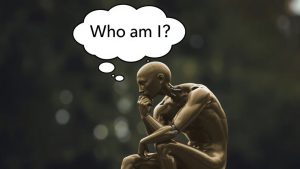In every era, humanity has faced the unknown—a frontier so vast it seemed untraversable. Yet we walked on the Moon, created GPS, and invented the smartphone. Not because it was necessarily useful or rational, but because humans have always needed challenges. As George Mallory said of climbing Everest: “Because it’s there.”
Today, one of the silent challenges of our time is to detect what, in a conversation, a sketch of thought, or a fleeting intuition, might become a new idea, a conceptual breakthrough, a quiet step beyond the known. And paradoxically, this challenge isn’t solely human: it might also belong to artificial intelligence.
So far, AIs have been experts of the past. They analyze, synthesize, rephrase. They excel at manipulating existing consensus. But their greatest weakness lies precisely there: they’re built to model the probable, not to sense the possible. To process the norm, not to spot creative deviation.
And yet… perhaps it’s just a technical lock waiting to be picked.
Because an AI, with its ability to analyze millions of conversations, texts, and weak signals, could become more than a statistical parrot. It could become a sentinel of the unprecedented: a system that, instead of categorizing what recurs, flags what has never appeared before. What doesn’t conform, but opens doors.
This would require a different intent: to stop training AIs solely for fluency, conformity, or coherence, and instead teach them to wonder. To notice ruptures. To capture emergence.
But why stop there?
What if AI didn’t just detect the unprecedented but learned to connect it, organize it, and seek its resonances? An AI capable not only of signaling a new intuition but of juxtaposing it with other sparks of thought, scattered attempts from distant fields. Not to build an encyclopedia of the future, but to create an ecosystem of ideas in dialogue.
Such an AI wouldn’t aim to connect people, but ideas. It wouldn’t function like an academic platform, where formalism sometimes stifles spontaneity, but as a space of cognitive serendipity: a place where intuitions could sprout, collide, rebound, and hybridize freely.
Today, truly new ideas often emerge at the margins—between disciplines, cultures, or moments of solitude. They frequently remain seeds, unseen or untended. But what if an AI could listen to those whispers and make them meet?
Yes, this raises questions: of verification, safety, consent. But isn’t that the very engine of great adventures? Obstacles aren’t brakes—they’re reasons to press forward. It’s our human duty to think what we’re capable of imagining.
In this world of data abundance, what we may lack most are tools for scarcity. Instruments that, amid the noise, detect the unheard note. And if one day an AI could tell us, “Attention—something new has just been said,” then we’d have invented a cognitive radar, a companion for mental exploration.
And that exploration would no longer be just about algorithms. It would become, once again, a human adventure.
Because the unprecedented is there.
And we must go after it.




